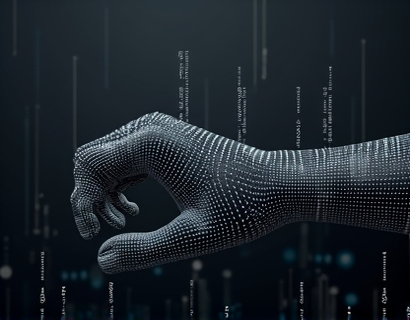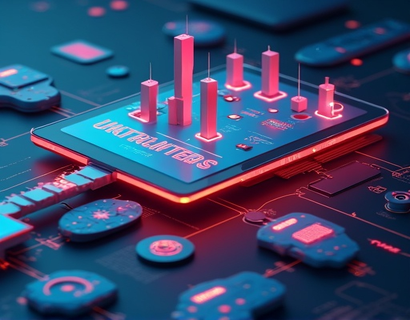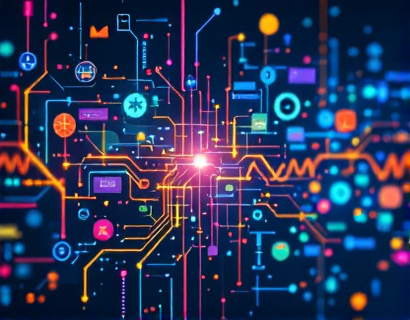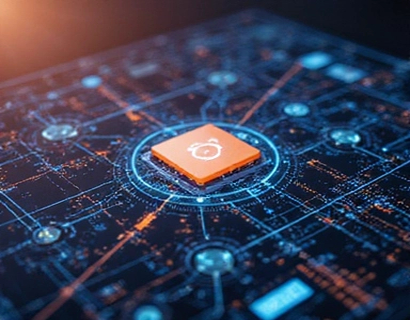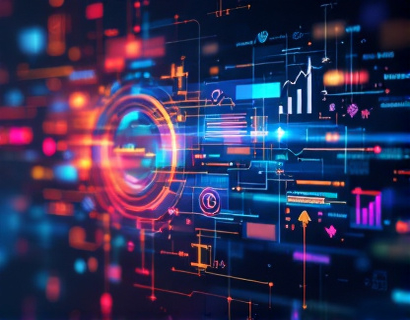Crypto and AI Driven Solutions for Enhanced Digital Experiences
The integration of cryptocurrency and artificial intelligence (AI) is revolutionizing the digital landscape, offering unprecedented opportunities for innovation and user empowerment. This article delves into the transformative impact of these advanced technologies, exploring their applications and potential to reshape user experiences across various sectors. By examining the synergy between blockchain and AI, we aim to provide tech professionals and early adopters with valuable insights into harnessing these tools for enhanced efficiency and growth in the digital world.
Understanding the Intersection of Crypto and AI
The convergence of cryptocurrency and AI represents a pivotal moment in technological evolution. Cryptocurrencies, built on blockchain technology, offer a decentralized and secure means of transaction, while AI brings intelligent automation and data-driven insights. Together, they create a powerful framework for developing applications that are not only secure but also highly adaptive and user-centric.
Blockchain's inherent transparency and immutability make it an ideal foundation for AI systems that require trust and reliability. AI, on the other hand, can process and analyze vast amounts of data from blockchain networks, extracting meaningful patterns and insights that can enhance decision-making processes. This synergy enables the creation of smart contracts that execute automatically when predefined conditions are met, reducing the need for intermediaries and increasing efficiency.
Enhancing Security through Crypto and AI
One of the most significant benefits of combining crypto and AI is the enhancement of security measures. Traditional systems often struggle with vulnerabilities and breaches, but the integration of AI can significantly bolster security protocols. AI algorithms can detect anomalies and potential threats in real-time, providing a proactive defense mechanism. In the context of cryptocurrency, AI-driven security solutions can monitor transactions and network activities, identifying and mitigating risks before they escalate.
For instance, machine learning models can be trained to recognize fraudulent patterns and behaviors, such as unusual transaction volumes or suspicious login attempts. By continuously learning from new data, these models become more accurate over time, ensuring a robust security framework. This is particularly crucial in a decentralized environment where traditional centralized security measures are less effective.
Personalized User Experiences with AI
AI's ability to analyze and interpret vast datasets makes it an invaluable tool for creating personalized user experiences. In the realm of digital services, AI can tailor content, recommendations, and interactions based on individual user preferences and behaviors. When combined with cryptocurrency, this personalization can extend to financial services, offering users customized investment strategies and portfolio management tools.
For example, AI-driven financial advisors can analyze a user's transaction history, risk tolerance, and market trends to provide tailored investment advice. This level of personalization not only enhances user satisfaction but also increases the effectiveness of financial solutions. Moreover, blockchain ensures that these personalized services are secure and transparent, building trust between users and service providers.
Decentralized Applications (DApps) and AI
Decentralized Applications (DApps) are a prime example of how crypto and AI can collaborate to create innovative digital experiences. DApps leverage blockchain technology to operate on a decentralized network, eliminating the need for central authorities. When AI is integrated into DApps, the potential for advanced functionalities becomes even more pronounced.
AI can enhance DApps by providing intelligent automation, predictive analytics, and natural language processing capabilities. For instance, a decentralized marketplace can use AI to optimize pricing, match buyers and sellers based on preferences, and automate contract executions. This not only streamlines operations but also enhances the overall user experience by reducing friction and increasing efficiency.
Smart Contracts and AI-Driven Automation
Smart contracts are self-executing contracts with the terms of the agreement directly written into code. When combined with AI, smart contracts can become even more powerful and adaptive. AI can analyze complex scenarios and dynamically adjust contract parameters to optimize outcomes.
For example, in supply chain management, AI can monitor various factors such as inventory levels, transportation delays, and demand fluctuations. Based on this data, AI can modify smart contract conditions to ensure smooth operations and minimize disruptions. This level of automation and adaptability is crucial for businesses looking to enhance their operational efficiency and responsiveness.
Data Privacy and AI in Cryptocurrency
Data privacy is a critical concern in the digital age, and the combination of crypto and AI offers promising solutions. AI can help implement advanced privacy-preserving techniques, such as homomorphic encryption and zero-knowledge proofs, which allow data to be processed without revealing sensitive information. These techniques are particularly useful in blockchain networks where transparency is a core principle but privacy is also essential.
By integrating AI-driven privacy solutions, cryptocurrency platforms can ensure that user data remains secure and confidential. This not only complies with regulatory requirements but also builds user trust, a vital factor for the widespread adoption of digital currencies and blockchain-based services.
Challenges and Considerations
While the integration of crypto and AI presents numerous opportunities, it also comes with challenges that must be addressed. One of the primary concerns is the computational resources required for AI algorithms, especially those involving deep learning and complex data analysis. Blockchain networks, particularly those using proof-of-work consensus mechanisms, can be energy-intensive, raising environmental concerns.
To mitigate these issues, the industry is exploring more efficient consensus mechanisms, such as proof-of-stake, and developing AI models that require less computational power. Additionally, regulatory frameworks are evolving to address the unique challenges posed by these technologies, ensuring that innovation proceeds in a responsible and sustainable manner.
Future Prospects and Innovations
The future of crypto and AI is bright, with ongoing research and development poised to unlock new possibilities. One area of focus is the integration of AI with other emerging technologies, such as the Internet of Things (IoT) and 5G networks. This convergence can lead to smarter, more interconnected systems that enhance various aspects of daily life, from smart cities to healthcare solutions.
Another promising direction is the development of AI-powered blockchain analytics tools. These tools can provide deeper insights into blockchain activities, helping regulators, businesses, and users make informed decisions. By leveraging AI's analytical capabilities, the blockchain ecosystem can become more transparent and efficient, fostering greater adoption and trust.
Conclusion
The integration of cryptocurrency and AI is transforming the digital landscape, offering innovative solutions that enhance security, personalization, and efficiency. As these technologies continue to evolve, they will play a crucial role in shaping the future of digital experiences. For tech professionals and early adopters, embracing these advancements can lead to significant growth and opportunities in the rapidly changing digital world.




